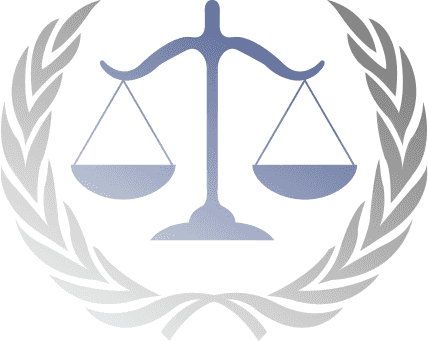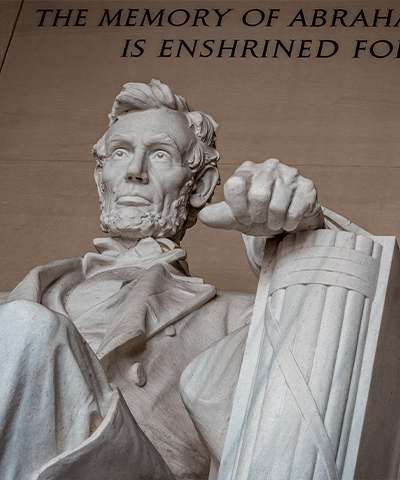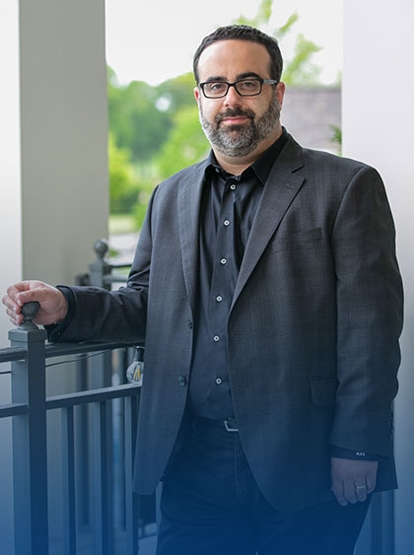
Washington D.C. Debt Relief Lawyer
Your Trusted Guide to Effective Debt Relief Solutions and Strategies
It can be easy to feel helpless in mounting debt, especially if you have little to no extra income to catch up on bills. However, relief is possible no matter how dire your financial circumstances may seem. Filing for bankruptcy can help you save your home, stop wage garnishments, and escape seemingly endless cycles of debt.
Our Washington, D.C., debt relief lawyer can help you regain financial freedom through bankruptcy. Our team at The Belmont Firm can determine which type of bankruptcy is right for you and advise you every step of the way. We are familiar with various strategies for reducing and eliminating debt and are committed to delivering the results you need and deserve.
Call Belmont Law Firm today at (202) 875-8445 or contact us online to schedule a meeting with our debt relief lawyer in Washington, D.C.


The Automatic Stay
An Automatic Stay is a legal provision that comes into effect automatically upon filing for bankruptcy. It immediately halts most creditor actions and collection efforts against the debtor. It's a crucial component of the bankruptcy process designed to give debtors breathing room to reorganize or discharge their debts.
What Does an Automatic Stay Provide?
The court will promptly issue an automatic stay when you file for bankruptcy. This order provides immediate relief from all imminent or ongoing collection actions. Your creditors will also be forced to stop calling and leave you alone until your bankruptcy case has concluded.
Filing for bankruptcy can temporarily stop:
- Foreclosure
- Repossession
- Wage Garnishments
- Collection Lawsuits
- Creditor Communications
Discharging Debts Through Bankruptcy
Most consumers will file for Chapter 7 bankruptcy or Chapter 13 bankruptcy. Their current level of income will determine their eligibility for each. Chapter 7 bankruptcy is meant to assist consumers with little to no income, while Chapter 13 bankruptcy helps consumers with sufficient income to repay their debts partially.
- In a Chapter 7 bankruptcy, your nonexempt assets will be liquidated, and the proceeds will be used to compensate your creditors. Liquidation can sound intimidating, but you can exempt and protect many of your assets, including equity in your home and vehicle. You can often keep most or even all of your assets.
- Chapter 13 bankruptcy filers must make monthly payments as part of a repayment plan. This plan reorganizes and consolidates all outstanding debts, and the monthly installment amount will be determined by your current disposable income – not the total amount of your debt. Most plans last between three and five years.
Most bankruptcy filers can discharge their unsecured debts upon completing the liquidation process or your repayment plan. Any remaining credit card debt, medical debt, personal loans, or unpaid utility bills will be forgiven.
Student Loan Debt Relief
Student loan debt is harder to eliminate but can sometimes be discharged at this stage if you can prove “undue hardship.” Though you cannot typically discharge other types of debt through bankruptcy, you may be able to reduce or pay off many types of priority debt – including tax debts – as part of your Chapter 13 bankruptcy plan.
Regardless of which type of bankruptcy you file for, eliminating unsecured debts can give you more financial flexibility and resources to address the debts you cannot discharge. For example, say you have a considerable amount of tax debt, credit card debt, and missed mortgage payments.
Filing for Chapter 13 Bankruptcy
Because you still have a reliable income, you file for Chapter 13 bankruptcy. The automatic stay prevents a foreclosure from proceeding, and you agree to address the missed mortgage payments and related penalties as part of your repayment plan. Because it is a priority debt, you must also pay off your tax debt in full as part of the reorganization.
Your disposable income determines the monthly payment amount, and your payments over the next five years primarily go toward curing your tax debt and mortgage payments. After the bankruptcy, your tax debt and mortgage arrears have been paid, but you still need to continue making hefty mortgage payments going forward – and you have barely touched the entirety of your growing credit card debt. Thanks to bankruptcy, you can discharge the entirety of the credit card debt, and you can, therefore, exclusively use your disposable income to keep up with your mortgage.
This is just one scenario where bankruptcy can provide you with powerful relief. At The Belmont Firm, we are committed to helping Washingtonians secure debt-free futures. Our Washington, D.C., debt relief lawyer can carefully assess your unique circumstances and advise how bankruptcy can help you overcome your financial difficulties.
Secure Your Financial Future with a Washington D.C. Debt Relief Attorney
In the face of mounting debt and financial hardship, bankruptcy can be a lifeline to regain control. Our Washington, D.C., debt relief lawyer at The Belmont Firm stands ready to guide you through this process, offering expertise in Chapter 7 and Chapter 13 bankruptcy. We aim to empower you to secure a debt-free future, offering tailored strategies for your unique circumstances. Contact The Belmont Firm today to take the first step toward a brighter financial future.
Get Debt Relief Now: Schedule a Consultation with Belmont Law by calling (202) 875-8445 for personalized bankruptcy assistance in Washington, D.C.
Why Choose US?
Trusted Guidance That Exceeds Expectations-
Payment Plans Available
-
Free Consultations
-
Serving Washington DC Areas
-
Client Centered

We're Ready to Help You!
Contact Us Today for Your Free Initial Consultation



